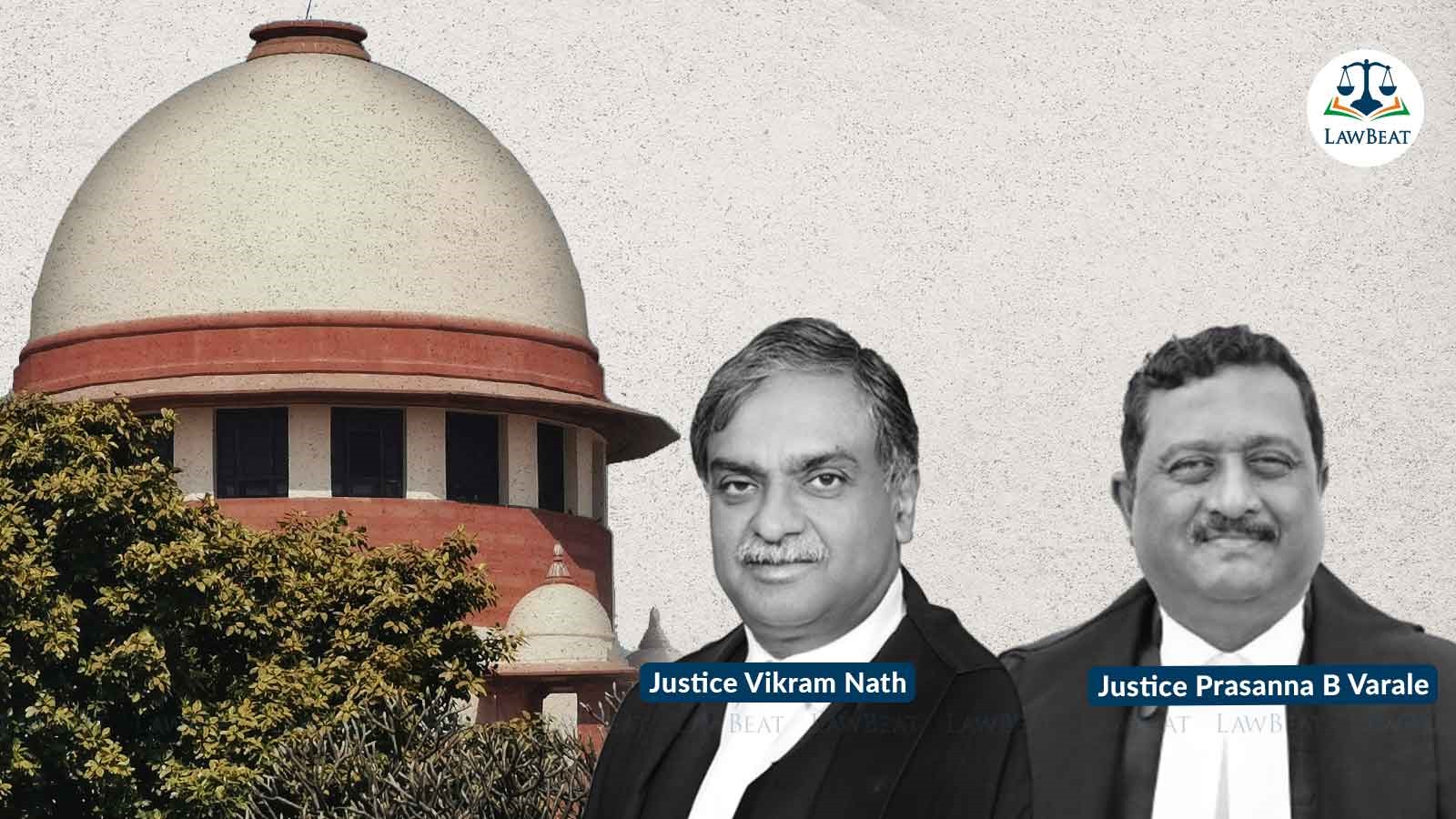'Two wrongs do not make a right,' SC allows criminal proceedings against firm owner

Merely because appellant was an equal mischief player and/or a person having criminal antecedents at his credit by itself will not absolve respondents from the criminal liability, SC said
"Two wrongs do not make a right," the Supreme Court has said as it allowed an appeal by "an equal mischief player". Court has overturned the order quashing the summons issued against a contractor for forging and fabricating documents in submitting a bid for a government contract.
A bench of Justices Vikram Nath and Prasanna B Varale set aside the Jharkhand High Court's order of December 5, 2023 which quashed the summoning order of January 31, 2022 against Santosh Kumar Choudha and others of M/s SS Infrastructure Co and its partners for submitting a forged and fabricated document.
The contract was in respect of a project namely Namna Ankiat Project and the work under this project was of extension, restoration and modernisation under the Jinjoyi Irrigation Scheme in district Palamau, Jharkhand, with an estimated cost of Rs 35,18,11,422.
An FIR was lodged following a complaint made under Section 156(3) of the Criminal Procedure Code by Dharambeer Kumar Singh, a sub contractor who himself claimed to have fabricated the documents with regard to past experience of construction firm.
The bench said, the High Court ought to have considered the complicity of the accused in case of forgery, which will have to be addressed after a proper appreciation of evidence and such appreciation of evidence can be done only by undertaking the initial process i.e. by conducting the trial on the aspect of forgery.
The summons order was only at an initial stage and at such a nascent stage, the High Court ought not to have recorded the finding on the aspect of forgery, the bench added.
"We state that admittedly respondents are the beneficiaries and merely because the appellant was an equal mischief player and/or a person having criminal antecedents at his credit by itself will not absolve respondents from the criminal liability as alleged against them. Least to say, “Two wrongs do not make a right”," the bench said.
Following the lodging of the FIR, respondent Choudha approached the High Court which declined to grant him anticipatory bail, in view of serious nature of allegation against the appellant of being in conspiracy with the officers and other persons in the higher echelons of the state government having defrauded the state government of huge amount of money.
The police, however, submitted a final report on October 31, 2020, claiming lack of evidence. On a protest petition, the magistrate ordered further investigation after noting serious lapses and defects in the investigation.
The investigating agency again citing lack of sufficient evidence filed a second final report, which was rejected by the magistrate who issued summoning orders.
In its analysis, the apex court noted the High Court laid much emphasis on the statements, referred in the case diary, and observed that it was the appellant before this court who had manipulated the documents by altering the experience certificate along with the tender.
The court also noted the High Court failed to appreciate that at the relevant time, the appellant was an employee and working for Choudha, who was successful in obtaining the tender on the basis of fabricated documents. Though Choudha was not fulfilling the requisite condition of the experience, by using forged and fabricated documents, he has shown himself before the competent authority to be fulfilling the pre-requisite condition of experience. Choudha was the ultimate beneficiary of the allotment of the said tender.
"In the instant case, the High Court has delved into an aspect which was absolutely not warranted and has exceeded its jurisdiction. The aspect about complicity of a person who was involved in the forgery is a disputed question of fact and the same will have to be addressed after a proper appreciation of evidence which can be done only during trial and not at such a nascent stage when summons is served," the bench said.
The court opined the Magistrate while considering the fact that Choudha, was a beneficiary and after considering the scope of summons order had rightly observed that a prima facie case is made out, which required an adjudication through a trial.
The court thus remanded back the matter before the Judicial Magistrate for proceeding with the trial in accordance with law.
